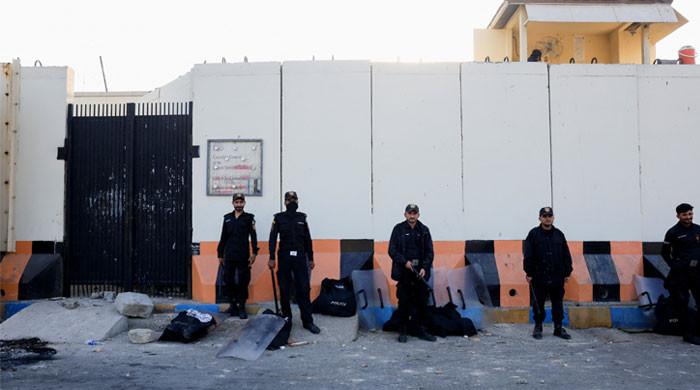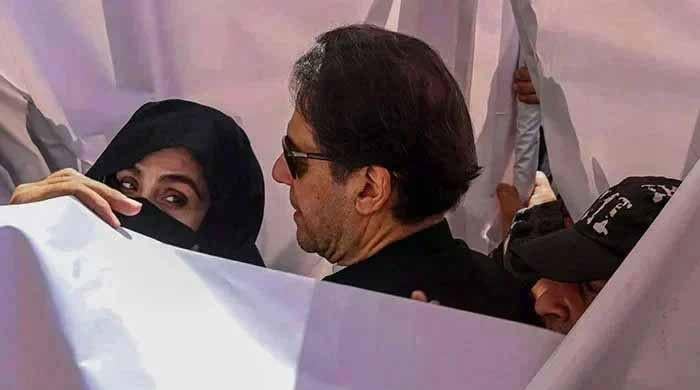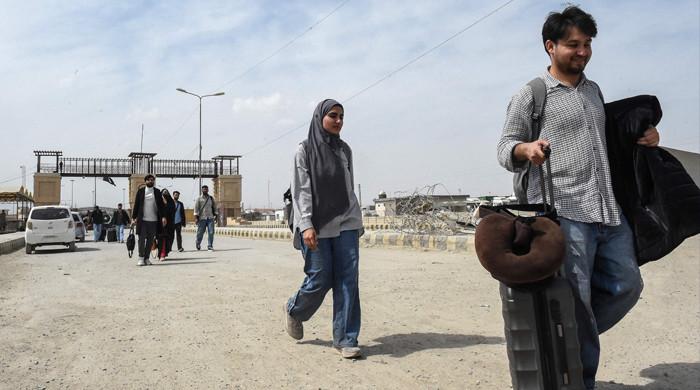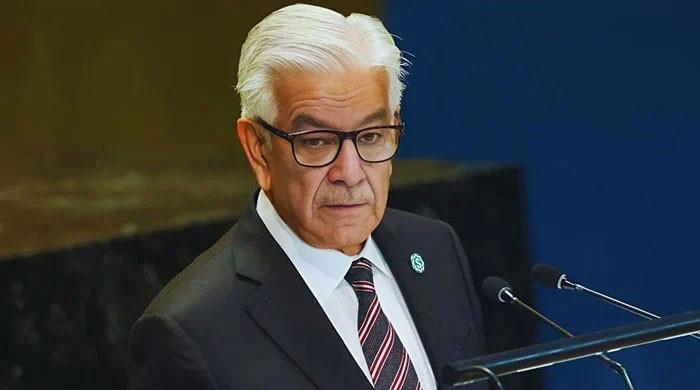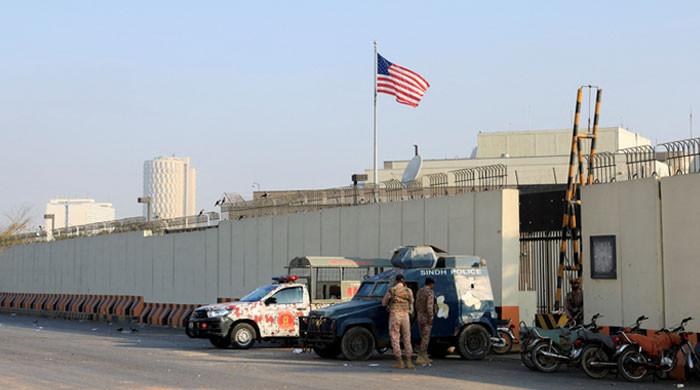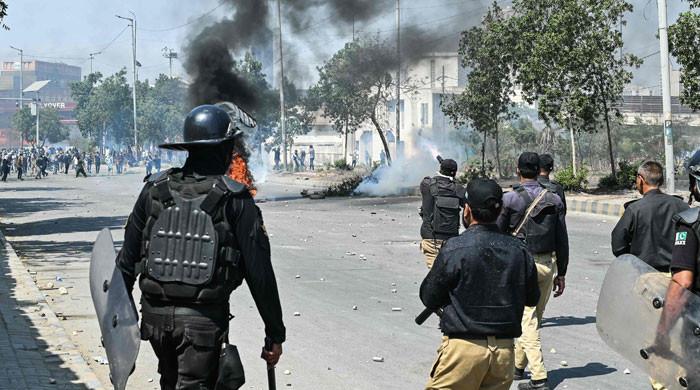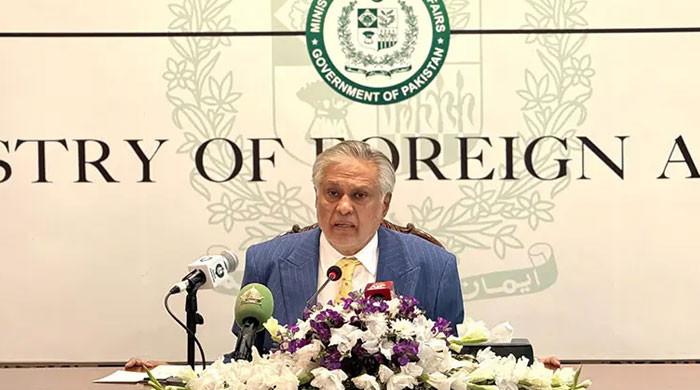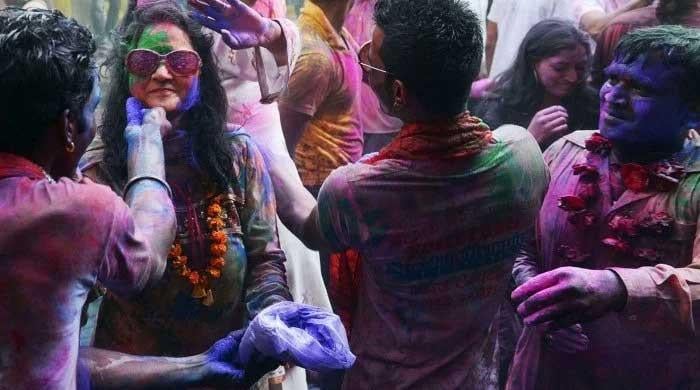President Alvi underscores importance of e-voting for electoral reforms in Pakistan
President Alvi explains how the e-voting system, which will include both electronic voting and ballot papers, will work
May 05, 2021
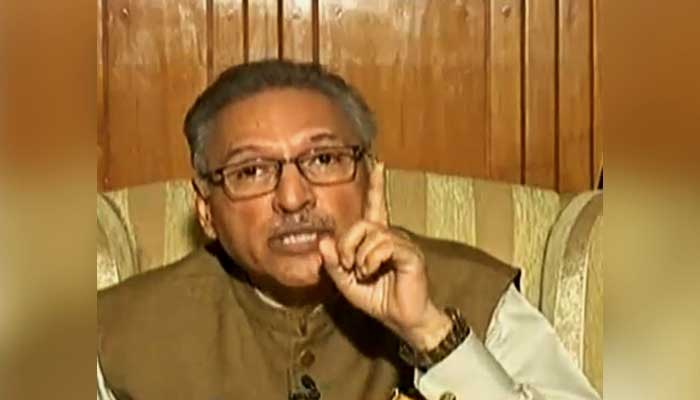
President Arif Alvi on Wednesday spoke on the importance of e-voting to Pakistan's electoral process in an exclusive interview with Geo News on programme "Aaj Shahzeb Khanzada Kay Saath".
At the outset of the interview, the president said that the e-voting system, when introduced in Pakistan, will not purely be electronic in nature.
"It will also include paper ballots. Therefore, electronic voting is not just an electronic count," he said.
President Alvi said that in 2016, when specifications were prepared for e-voting, the committee to finalise matters included PPP, JUI-F, and PML-N and unanimous agreements came to the fore regarding the system.
He said the Electoral Reforms Act approved in 2017 had two clauses. One calls for a trial of biometric identification machines and the electronic voting system. The trial took place during Yasmin Rashid's election and the Election Commission of Pakistan approved it, said the president.
President Alvi said thumbprints of 82% people were recognised and for 9%, a poor quality of thumbprint record at the ECP's end was a problem, "so collectively, there was thumbprint recognition of about 91% voters".
How the e-voting system works
Alvi likened it to 90-91% people sitting in their cars and driving away "without any arguments" in an electronic toll tax system. "For the remaining 9%, the old system of voter lists will be in place "as backup".
The process begins with fingerprint recognition.
"So with the fingerprint identification, it will be known it is not a false voter."
"Then the presiding officer will turn on the e-voting machine [...] you will press the button for your chosen election symbol. A thin ballot paper will be printed with your chosen symbol. You will either take it yourself to drop it into a box, or after verification, it will automatically be cut and drop into a ballot box below, which will be emptied and its contents presented the next morning," Alvi explained.
He said all the while the machine will keep a count of votes for each party and will print it at the end of the exercise. The ballot papers, meanwhile, will stay in the box, until counted by hand.
Alvi said it is befuddling why there is so much criticism against the e-voting system. He said that the security with which voting can take place this way also extends to the print of the ballot paper "which according to the specifications will last 5 years".
What if the e-vote and ballot paper count do not reconcile?
Responding to concerns over how the matter of a difference in counts between the physical ballot paper and the e-vote will be settled, the president said all parties should sit down and approve that instead of the voters carrying the ballot paper themselves to drop in a box, they should simply verify the vote to be true on the screen and it should just drop into an attached box.
"The parties should give a ruling that if there is still a difference of votes, then the physical ballot paper should take precedence," he added.
He said at the end of the polling exercise, the printed paper with the total tally of votes will be given to all the polling agents immediately.
"If it is challenged, the sealed box [...] will be ready for counting. It is just adding a safety standard," Alvi said.
'ECP attended all the meetings'
Alvi rejected reports that the ECP was not taken into confidence over e-voting.
He said the prime minister had made him chairman of two task forces, one that involves population affairs and the other that pertains to Information Technology, an essential component for the electoral reforms.
The president said when he, along with the committee for electoral reforms sat down to deliberate the matter, it kept the Ministry of Parliamentary Affairs in the loop.
"The ministry is the link between us and the ECP. So all the meetings we did, saw attendance by ECP representatives," he said.
He said the meetings were also attended by officials of the IT ministry which oversees online voting, Ministry of Science and Technology which sees to the production of Electronic Voting Machines, and NADRA officials when required.
Alvi said he has asked the prime minister to put the matter up for debate in the parliament after Eid so input can be given by all lawmakers and modifications made.
He added that his task is only confined to putting everyone in touch with each other and that the matter will still require approval by the parliament.
Why was an Ordinance brought then?
Alvi, responding to why the matter was not first debated on in the parliament and why an Ordinance was approved first, said that the "timeline is very tight" to do things before the next elections.
He said there will be some 300,000 odd polling stations which means it will require production of around 325,000 machines.
"So if the matter is decided with everyone's input 4-5 months down the line, we will need to produce 1,000 machines a day [to meet the deadline]," he explained.
What about countries that have done away with e-voting?
The president also addressed concerns that issues may still emerge with the use of such a system.
"You are comparing apples and oranges," he said, adding: "If other countries have done away with it, it was not this system."
"Why can we not lead for once instead of doing what others do?"
Alvi said that the system does not have an internet connection and is so "not hackable". "The machine only counts that ballot papers that are going into the box."
"It also produces a receipt immediately," he added.
Alvi said the objections that arose in India stemmed from the use of just the push of a button on a machine and no ballot papers. "Here we have a machine and ballot papers," he said.
Alvi said the idea is to improve the system, keeping the old ballot paper option intact.
"I also invite the Opposition, after Eid, to come to the presidency or the parliament when the machine is kept there. I will come there. They can put forth their concerns then."
"People will buy into the idea, when our leaders do."




